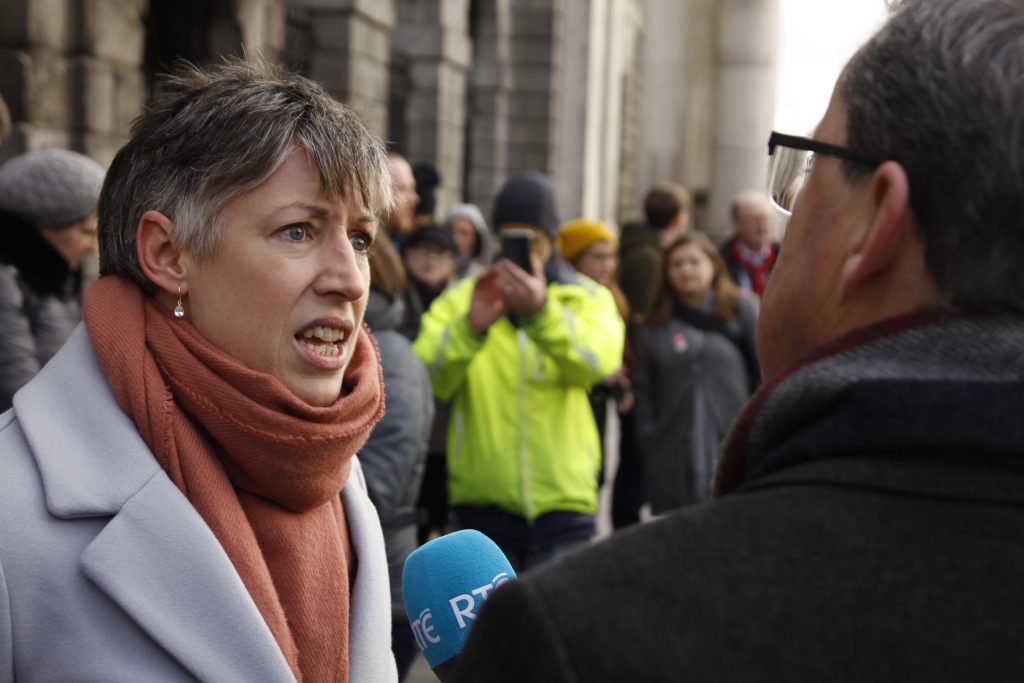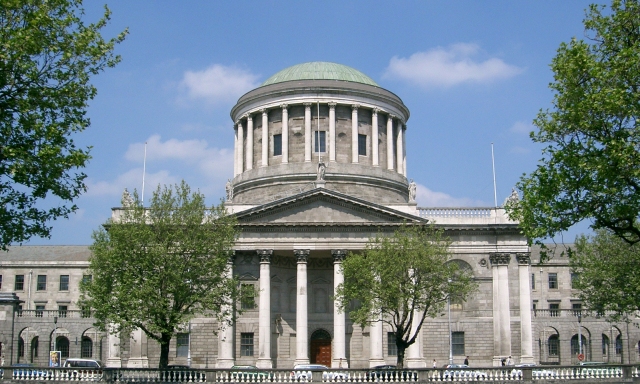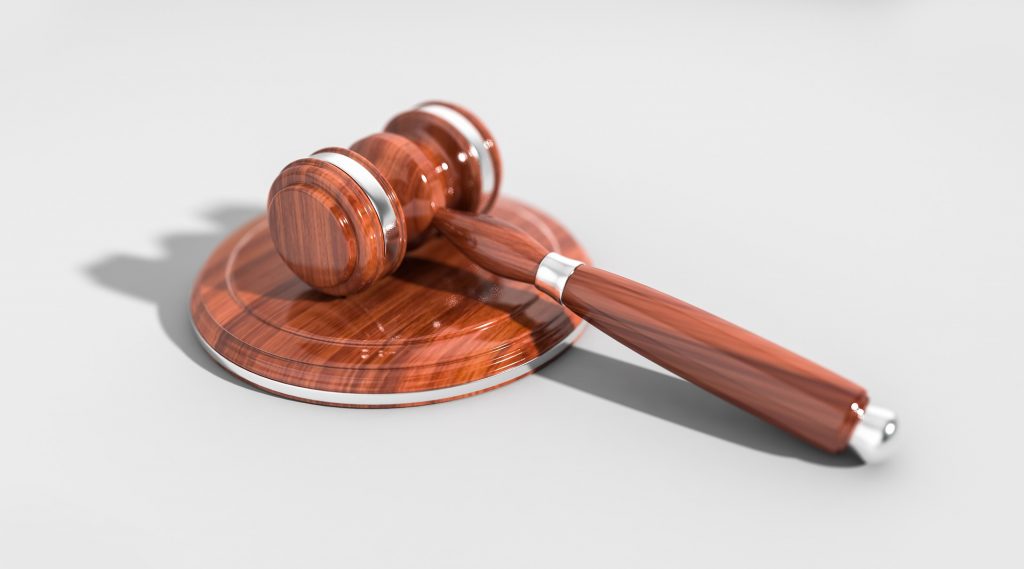State plan not unlawful, High Court finds in historic climate case

September 19th, 2019
A challenge to the State’s climate mitigation plan has failed to show that it is in breach of any constitutional right to a healthy environment, the High Court ruled in a landmark climate case today.
The milestone Climate Case Ireland concerns a challenge from Friends of the Irish Environment (FIE) to the National Mitigation Plan (NMP), a ‘living document’ of over 100 actions that the Government says will help advance its goal of
FIE argued that the Plan is not designed to achieve substantial emissions reductions needed to halt rising temperatures and, as such, does not protect citizens from the worst impacts of climate breakdown.
This, the group argued, is a clear breach of constitutional and human rights, including the right to an environment consistent with human wellbeing and dignity.
A “very complex” case including very difficult issues of law and science, Mr Justice Michael MacGrath said that it is clear that climate change is a very serious issue facing both Ireland and the world.
While also accepting that an unenumerated constitutional right to a healthy environment does exist for the purpose of this case, Mr Justice MacGrath said that he was not satisfied that the making of the plan itself impacted on the right.
He said that he cannot conclude that the plan itself puts these rights at risk based on FIE’s argument that the actions within the Plan are not strong enough to reduce emissions in the rapid manner required to halt temperature rise.
He said that it would also be inappropriate to view the plan in isolation from the Climate Act under which the Plan was created. “The plan is but one, although extremely important, piece of the [climate policy] jigsaw,” he said.

Background of the case
During the four-day hearing in January, FIE argued that the State’s mitigation plan is not designed to achieve substantial emissions reductions needed to halt rising emissions and, as such, does not protect citizens from the worst impacts of climate breakdown.
FIE wanted to see the plan sent back to the Government for reformulation to bring it in line with emissions reductions required to limit temperature increases to 1.5C as called for by the world’s leading scientists.
Limiting warming to 1.5°C rather than 2°C, they say, would help us to avoid the worst impacts of climate change, leaving 420 million fewer people exposed to severe heatwaves, for example.
In 2017, Ireland had the third highest emissions of greenhouse gases per capita in the EU in 2017 at 13.3 tonnes of CO2 equivalent. This is 51 per cent higher than the EU average of 8.8 tonnes.
According to both the Environmental Protection Agency (EPA) and the State’s own climate advisory council, emission cuts are not coming fast enough, leaving us well off track to meet our 2020 and 2030 climate targets.
The Minister for Climate Action Richard Bruton has also admitted that we are “95 per cent off course” to deliver on our 2020 targets.
The State countered in January that the levels of emissions reductions that FIE want to see will have wide-ranging impacts on Irish society and would require “extreme alterations” to our way of life, including significant reductions in the currently expanding dairy herd.
Its legal team also pleaded that a “generalised deterioration of the environment” caused by climate change is not enough to show that the plan is in breach of constitutional and human rights.
The case has gained significant public following and over 18,000 people have signed a petition to tell the Government that they stand behind the case.
There was also strong in-court public support during January’s hearing, with Mr Justice Michael MacGrath even stopping proceedings at one point to allow more members of the public into the courtroom, directing them to available floor space close to his desk.
Yet, the State argued during proceedings that the applicant, as a company limited by guarantee, has no legal standing to assert a right to a healthy environment on behalf of the Irish people. Mr Justice MacGrath found that the group has standing.

Separation of powers
Counsel for the State, Niamh Hyland SC argued in January that the case is not really about the Plan and is “just a vehicle” for FIE to seek a statement from the courts that the State’s approach to limit emissions is unconstitutional.
She said that the applicant is essentially seeking a judgement that would see the judiciary “put straight into the position of the executive… telling the State what [emissions] reduction is to be achieved by a particular date”.
Also in January, Eoin McCullough SC, counsel for FIE, said that the State’s line of argument is a “false premise that lies right through the State’s submissions”.
“[The State] says that the applicant is trying to impose what it calls a positive obligation [on the court] to deliver a particular prescribed plan,” he said.
In fact, Mr McCullough said, the applicant does not seek to prescribe the types of emissions reductions that must be made nor does it seek a declaration that the State must bring about a certain level of emissions reductions.
Mr Justice MacGrath said today that the courts must give respect to the separation of powers and that the courts are, and should be, reluctant to make
By his reading of the Plan, Mr Justice MacGrath said that it would appear to be heavily orientated toward policy to enable the State to take its first steps toward the goal of achieving a low carbon society by mid-century.

Two years of legal arguments
The case slowly bubbled away for almost two years with numerous court mentions, hearing date extensions, and squabbling back and forth over the admissibility of certain documents, reports and expert testimony, including a statement from the then-UN Special Rapporteur on Human Rights and Environment.
The statement from Professor David Boyd was submitted to the High Court in November 2018 by FIE as an exhibit to an affidavit to support its proceedings. He argued that climate change adversely impacts the right to life, a right that the Irish Government is “legally obliged to respect, protect and fulfil”.
“[The Irish State] must reduce emissions as rapidly as possible, applying the maximum available resources. This conclusion follows from the nature of Ireland’s obligations under international human rights law and international environmental law,” Prof Boyd’s statement read.
The State successfully argued, however, that the statement was inadmissible as it was largely based on climate litigation in other countries, including Pakistan, Colombia and the US where Prof Boyd has no direct expertise.
It is required under Irish law that an expert much be well knowledgable in the laws of the specific countries for such information to be accepted as independent foreign expert evidence.
Not Friends of the Irish Government
FIE is also challenging the Irish Government on a number of fronts, challenging the climate ambition of the National Development Plan and new regulations to take large-scale peat extraction outside of the planning regime. A judgment is expected on the peat case tomorrow.
The environmental group also has several cases currently before the Court of Justice of the EU (CJEU), including a bid to have court documents open to the general public and a challenge to the extension of planning permission for a proposed liquefied natural gas terminal close to the Shannon Estuary.
The group is also part of a pan-European project critical of the EU’s treatment of forest biomass as a renewable and carbon-neutral fuel.
[x_author title=”About the Author”]







